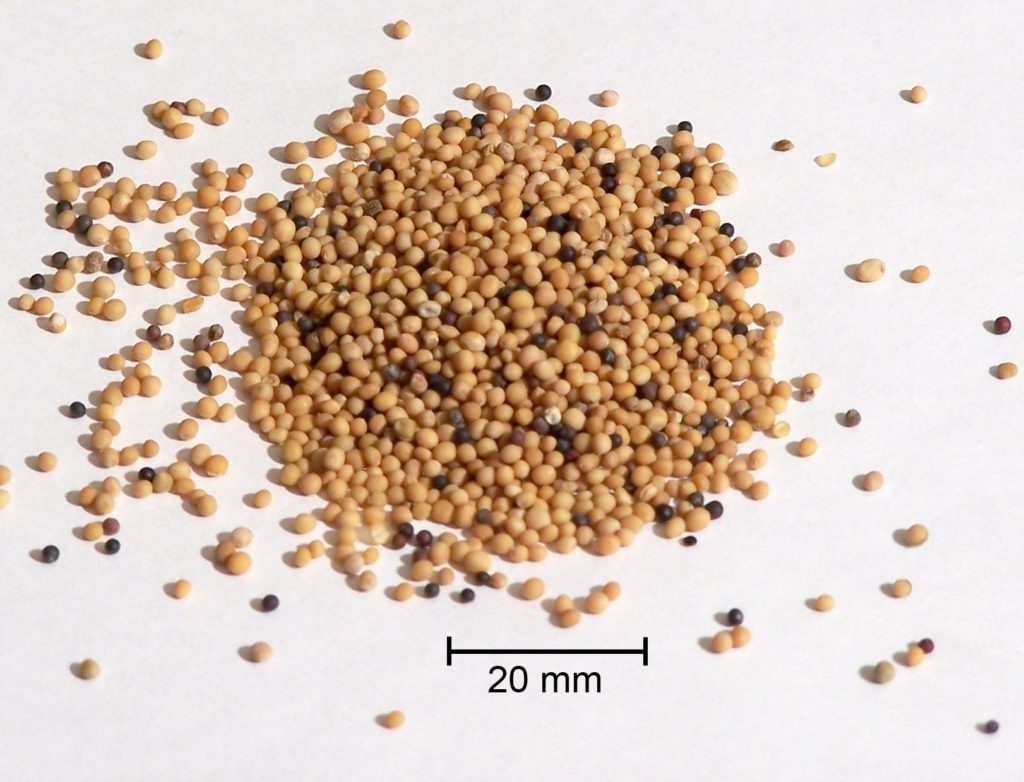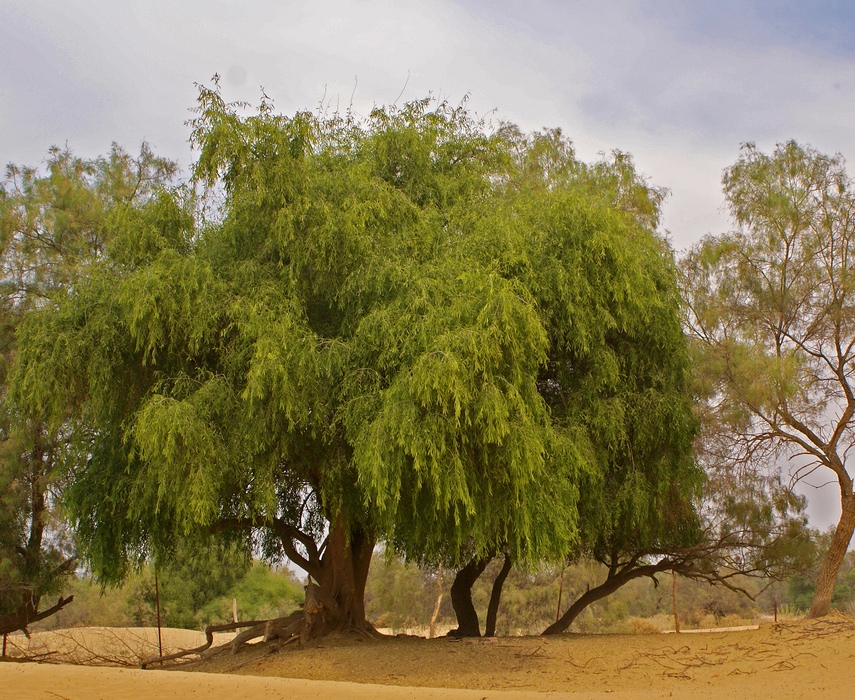Matthew 17:20 … The Faith of a Seed (04/16/17)
“If you have Faith the size of a mustard seed, you will say to this mountain: ‘Move!’ – and it will move. Nothing will be impossible for you.” ~ Jesus (Matthew 17:20)
Fittingly, just as a tiny mustard seed contains a surprising amount of Power, this tiny verse contains a surprising amount of Truth. Consider the following deeper implications of what Jesus was probably alluding to here …
First & foremost, it is important to note the context of this statement – important to note that Jesus was speaking to people of “little faith” and trying to awaken them to the fact that they too had immense Power at their fingertips (the Power of selfless Love – the Power innate to all acts of willing self-sacrifice – the Power inherent in all who choose to Love anyway). And what better way to do so than to mention the mustard plant – a ubiquitous weed that grew readily even in the most arid of conditions, a plant that came from a small seed and yet grew rapidly into a large bush (with some specimens reaching over ten feet tall near the Jordan River), and a plant that germinated extremely quickly – that could be planted one day and be growing heartily the next … All of these characteristics matched the message that Jesus was trying to convey to the doubtful – namely, that “salvation” was for everyone, not just the religiously privileged or the pious few; that even the smallest of Loving deeds was worth it – that even the tiniest acts of Love could blossom and bring great Peace, and that the benefits of selfless Love did not arrive as a slow-moving process of awakening or enlightenment – but rather accrued immediately after they were given.
Second, it is worthwhile to note that Jewish law at the time prohibited the growing of mustard in one’s garden – and that Jesus lauding mustard was yet another alluded critique of the unnecessarily limiting and indeed spiritually counterproductive religious regulations of his day.
Third, Jesus doesn’t stop there, but in all three of the Synoptic Gospels goes on to state that the mustard plant grows into “the greatest of shrubs” (Mark 4:30-32), with Matthew & Luke going on to state that it even thereafter “becomes a tree” (Matthew 13:31-32 & Luke 13:18-19). All three of these writings then go on to note that the mature mustard bush serves as shelter for the birds. And this latter addition is significant, for it shows Jesus equating the culturally prohibited & judged “unclean” mustard plant as being on equal symbolic footing to the glorious cedar trees famously mentioned in the Old Testament (see Psalms 92:12 — “The righteous flourish like the palm tree, and grow like a cedar in Lebanon”, and Daniel 4:10-22 — “Upon my bed this is what I saw: there was a tree at the center of the earth, and its height was great … and from it all living beings were fed … and in whose branches the birds of the air had nests”, and Ezekiel 17:22-24 — “I myself will take a sprig from the lofty top of a cedar … I myself will plant it on a high and lofty mountain … in order that it may produce boughs and bear fruit, and become a noble cedar. Under it every kind of bird will live; in the shade of its branches will nest winged creatures of every kind.”, and Ezekiel 31:1-9 — “Whom are you like in your greatness? Consider Assyria, a cedar of Lebanon … All the birds of the air made their nests in its boughs”).
Fourth, while more than a few modern-day theologians assume that Jesus is speaking about the spread of Christianity in this parable (and that the birds represent either the presence of evil – an influx of false prophets & heretics into the church; or the Gentile nations that will soon be sheltered by the church’s rapidly expanding penumbra), even the most cursory of glances at the teachings of Jesus shows that this cannot be the case. Indeed, Jesus went out of his way on many occasions during his ministry to point out A) that he was a dramatic reformer of Judaism, not a founder of any new religion (see Mathew 5:17-18 & Hebrews 8:8-13 et al) and B) that he most certainly did not want to be worshipped himself (see Mark 10:18, John 5:41, John 7:16, John 8:50-54, John 12:44 et al) but rather wanted his Way of Selfless Love to be “followed” (i.e. emulated – see Matthew 16:28, Matthew 25:35-40, John 12:24, John 13:15-17 et al).
Fifth, remember that “Faith” for Jesus was not a mental certainty of belief or a verbal announcement of confidence, but rather was a verb – an action performed despite doubt and fear, not without the presence of the same (see John 14:12).
Sixth, this verse is most certainly not meant to support the “Law of Co-Creation” or “The Prosperity Gospel” or the “Manifestation of Abundance” that have all become so vogue of late. Indeed, if we look to the other places in the Gospels where Jesus makes similar claims, he almost always adds the phrase “in his name” to the manifestive language used – and a very important addition this becomes, for the only way anyone can truly “pray in Jesus’ name” is to pray in harmony with his Way, his Truth, & his Life – a manner of prayer that requires that we avoid asking for anything for ourselves, and pray instead solely for the opportunity to be of greater service to others (see Matthew 18:20, Luke 11:19, John 14:13-14 et al). Indeed, this is the “Faith of the mustard seed” that reflects the “perfect Love” of his heavenly Father (Matthew 5:48).
And as such, this is the only Faith that can hope to “move mountains” without causing great harm to self and others. Loving the unlovable and sincerely Caring for an enemy are the most difficult of all deeds. And yet as long as we have Faith – the potent Faith of the mustard seed that is as active as it is humble – then such a selfless Love can be given (Mathew 5:43-48), and our salvation can be thereby assured (see Matthew 24:12-14).
Amen … Let it be so.






 ;
;